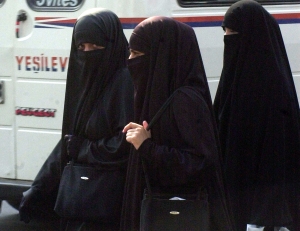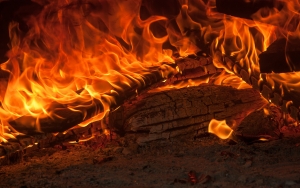Resources
Displaying items by tag: afghanistan
'Hell on Earth' for Afghan Christians
Christmas in the Fire
“If one part of the Body suffers, the whole suffers with it” (1 Cor 12:26).
In Britain, the Christmas period invariably brings with it a seasonal focus on cold weather and keeping warm by the fireside. Stoves and hearths suddenly become wonderfully inviting, comforting places – we even sing songs about them.
As you spend time near your own fireside over the next couple of weeks, remember our brothers and sisters around the world who are standing in the fire, suffering because of their faith in the Lord Jesus Christ. I’m convinced their songs are a lot more meaningful to God.
Eye on the Middle East
According to persecution watchdog and charity Open Doors, approximately 1 in 12 Christians worldwide is suffering from ‘high’, ‘very high’ or ‘extreme’ persecution.1
Its annual ‘World Watch List’ charts the 50 most dangerous countries in the world to be a Christian. This year, nine of the top 10 countries are in the Middle East and North Africa (20 out of the top 25). Holding the top spot for the 15th year in a row is Communist dictatorship North Korea. But for the most part, around the rest of the world, pressure on Christians is coming from Islamic fundamentalist communities and regimes.2
 Figure 1: Open Doors’ ‘World Watch List’ of the 50 countries where Christians are most persecuted. See Photo Credits.Zooming in on the Middle East, we are greeted by an ominous, uninterrupted corridor of red (‘extreme’ persecution), stretching from Pakistan in the east to Syria in the west (see Figure 1). These are five of the worst countries in the world for Christians, united by Islam as a shared source of oppression.
Figure 1: Open Doors’ ‘World Watch List’ of the 50 countries where Christians are most persecuted. See Photo Credits.Zooming in on the Middle East, we are greeted by an ominous, uninterrupted corridor of red (‘extreme’ persecution), stretching from Pakistan in the east to Syria in the west (see Figure 1). These are five of the worst countries in the world for Christians, united by Islam as a shared source of oppression.
The grim realities for Christians in these countries are rarely exposed or understood by the Western media, so why not make a point this Christmas of finding out a bit more? Read on for a taste of the situation in each one – and for some relevant resources.
Pakistan
World Watch Ranking: 4
Pakistan, the only modern state to be created in the name of Islam,3 has some 4 million Christians among its 198 million population – barely 2%. Its increasingly hard-line Islamic culture means Christians are frequently subject to attacks by ordinary Pakistanis and members of groups such as the Taliban and ISIS.
In 2013 a suicide bombing of a church in Peshawar left 100 dead, and only last year another targeting Christians celebrating Easter in a Lahore park killed over 75, mainly women and children. These are particularly vulnerable - according to Open Doors, around 700 Christian women and girls are abducted each year in Pakistan, and usually raped, then forced to convert and marry Muslim men.
Christians also often fall foul of the state and its notorious blasphemy laws, which carry the death sentence. Known churches are registered and monitored by the Government. But the brunt of persecution is born not by pre-existing Christian groups, but by Christian converts from Islam.
Remember: 17-year-old Sharoon Masih, a Christian teenager who was beaten to death by his classmates in August after drinking from the same glass as a Muslim.
For the most part, around the world, pressure on Christians is coming from Islamic fundamentalist communities and regimes.
Afghanistan
World Watch Ranking 3
In Afghanistan, where tribal society is intrinsically Islamic, conversion is illegal. There are no churches and the Government claims there are no Christians. Converts are seen as betraying their clan and are subjected to destitution, occult practices, being sent to a mental hospital, torture or execution if they are found out. Baptism is punishable by death.
As in Pakistan, believers face the dual threat of violence from their immediate communities and attacks from groups such as ISIS and the Taliban, which ruled the country completely during the late 1990s. Christians must go it alone - even meeting in small groups is too dangerous, and use of the internet is closely monitored – or flee the country.
It is impossible to know how many followers of Jesus there are, for they are all in hiding. There is one Jew in the whole country – who has his own Wikipedia page for the privilege! Even with all this, however, in 2015 Operation World named Afghanistan as having the second-fastest growing church in the world.
Remember: The three Afghan Christians (at least) who have been attacked and/or killed this year in German refugee centres.
Iran
World Watch Ranking 8
Armenians and Assyrians in Islamic republic Iran are allowed to be Christians, but they are treated like second-class citizens and remain a tiny minority (<1% of the population). Muslim converts to Christianity, by far a larger group, run the risk of the death penalty. Missionary activity in Farsi (Iran’s first language) is illegal, Christians are frequently imprisoned or subject to abuse, and house churches are often raided by the secret police.
Despite this, the number of Muslim-background believers is growing, with many reporting having dreams or visions of Jesus. Operation World has named the Iranian church as the fastest-growing in the world, and Open Doors notes that “more Iranians have become Christians in the last 20 years than in the previous 13 centuries put together”.
Remember: Yousef, Mohammadreza, Yasser and Saheb, four Iranian Christians who were landed with 10-year prison sentences in the summer for promoting ‘Zionist Christianity’. They appealed the sentence this week in court. At the time of arrest, they were also sentenced to 80 lashes for consuming alcohol, having been found taking communion.
Despite – or because of - intense persecution, the church in Iran and Afghanistan are the fastest-growing in the world.
Iraq
World Watch Ranking 7
In the early 2000s, Iraq was home to 1.5 million Christians – one of the world’s oldest Christian communities - now just 230,000 remain, with hundreds of thousands fleeing ISIS and the more general rise of Islamic fundamentalism since the US-led invasion in 2003. Many are fearing the total disappearance of this group.
Evangelism is illegal, and in ISIS-held areas churches have either been demolished or seized, public meetings have been banned and Christians have been subjected to violent punishments. Many have fled to Iraqi Kurdistan, which has been subjected to attacks from the Iraqi Government and Iranian-backed forces after trying to declare independence earlier this year.
As with other countries in the region, Muslim-background believers face the most severe persecution, ranging from social ostracism to execution. And yet, their number is growing apace, especially in the embattled Kurdish regions.
Remember: Christians in Iraqi Kurdistan, some testimonies from whom we will be featuring next week.
Syria
World Watch Ranking 6
Christians make up a larger minority in Syria, some 4% of the population – but this used to be about 10%. The civil war has forced about one million believers to flee in amongst the other refugees, and life for those remaining behind is very difficult.
Though officially Syrian Christians have much more freedom than other believers in the region, the Assad regime is no real friend. They are also being targeted by ISIS and other radical groups for bombings, abductions, abuse and murder.
Remember: The 116 Christian civilians slaughtered in a mass execution by ISIS in the desert town of Al-Qaryatain in October.
Light in the Darkness
Next week we hope to publish some testimonies from the believing community in Kurdistan. Amongst the stories you will read, one comment is particularly telling: “The weakness of Christianity is the strength of Islam”.
What does the unbelieving world see when it looks at Christians in the West? Compromise? Self-indulgence? A weak, watered-down faith with no effect whatsoever on the culture around it?
But while we see little fruit in our own nation, God is growing his Church – under the radar and away from the attention of the global media.
While we see little fruit in our own nation, God is growing his Church – under the radar and away from the attention of the global media.
Just as he has always used the humble things to shame the wise, the weak things of this world to shame the strong, the things that are not to nullify the things that are - so he is growing his Church through underground networks in the Middle East, through the single believers that choose to stay behind in warzones just so they can reach others with the Gospel, and through dreams and visions that reach Muslims who are otherwise beyond the reach of any Christian.
Resources and Encouragement
It is a sobering subject at Christmas time, but we would like to invite you all to join with us over the festive period in committing to pray for our brothers and sisters. There are also plenty of resources below for you to grow in your own understanding and raise the profile of the persecuted Church in this country – and please do add more by commenting below.
- Open Doors: Learn more about the persecuted Church, get prayer resources and write to persecuted Christians through Open Doors, which is also launching a 7-year campaign to get Christians around the world involved in bringing hope back to the Middle East. If you and/or your church could get involved, click here.
- Barnabas Fund: Hope and aid for the persecuted Church, and plenty of resources for believers in the West.
- Christian Solidarity Worldwide (CSW): A Christian charity that defends religious freedoms around the world. They provide plenty of information, resources and opportunities to take action.
- Operation World: Resources for praying for the nations.
- The British Pakistani Christian Association: A network for Pakistani believers that also aims to raise awareness about their plight in the UK. The BPCA is very close to the ground in Pakistan and provides insightful reports on the situation there for Christians.
- Elam is a charity that exists to establish and strengthen the Iranian Church.
- You might also be interested in our round-up of resources on Islam.
Notes
1 Statistics and information, unless otherwise stated, taken from Open Doors' 2017 report.
2 Islam may be the primary threat to Christian freedoms worldwide, but it is not the only threatening religion. Hindu nationalism is consistently a problem for churches in India, and hard-line Buddhist nationalism is making a come-back in south-east Asia. Let’s not also forget secular humanism in Europe and North America.
3 Pakistan was created as an independent home for Indian Muslims in 1947.







